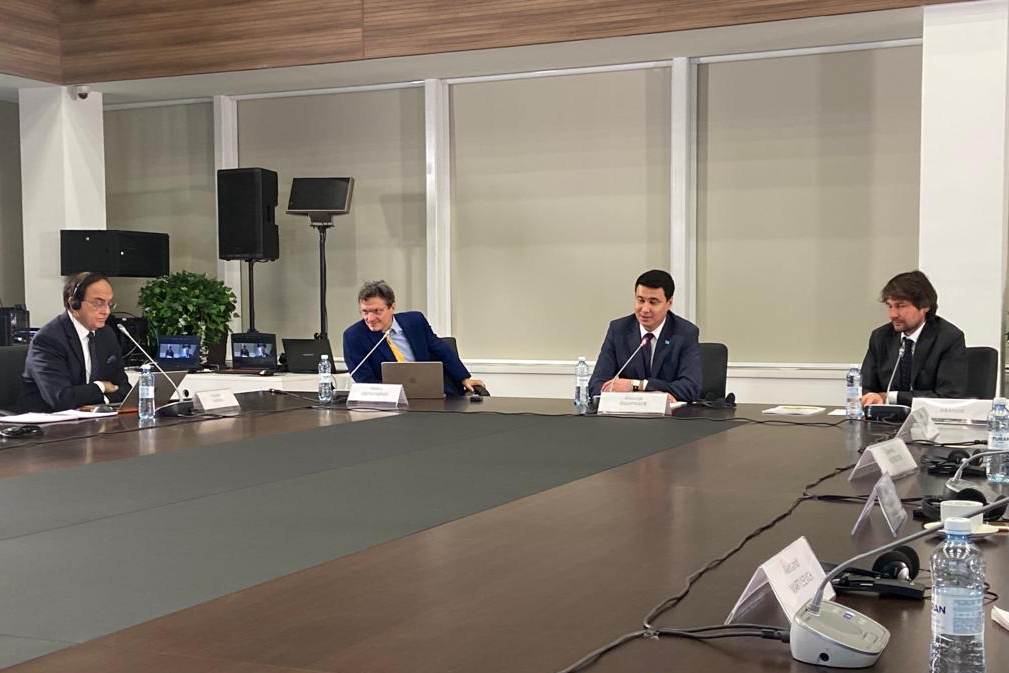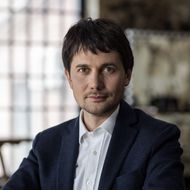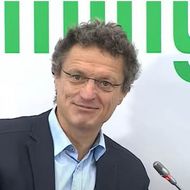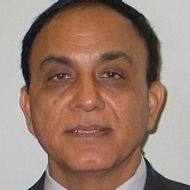Experts from HSE University Explore Prospects for Carbon Farming in Kazakhstan
HSE University’s International BRICS Competition Law and Policy Centre and the university’s Centre for Technology Transfer, together with the International Institute for Applied Systems Analysis (IIASA, Vienna), have released a draft version of the research report ‘The Carbon Farming Industry in Kazakhstan: Unlocking Opportunities.’ Experts from the UN Convention to Combat Desertification and the Kazakhstan-based TALAP Centre for Applied Research also took part in the project.
The report explores the positive effects of deploying carbon farming methods in regions with semi-arid and arid climates, using Kazakhstan as an example. The main problems of agriculture in such regions are moisture deficiency and loss of soil organic matter (humus), which affects the soil’s health and its ability to perform its functions. Illustrative examples in Kazakhstan include the virgin regions in the north of the country and the Aral Sea region in the southwest.
Large-scale projects in the second half of the 20th century had a negative impact on the vulnerable ecosystems of Kazakhstan and their biological resources: the development of virgin lands in the north, the construction of irrigation systems and hydroelectric power stations, and mining in the south.
Reducing current emissions is key to mitigating global warming. However, emission reduction alone is not enough to keep the planet’s average surface temperature from rising by 1.5°C or even 2°C. Firstly, not all emissions can be reduced to zero. Secondly, in order to stabilise the temperature at acceptable levels, it is necessary to remove some of the existing greenhouse gases from the atmosphere and place them for permanent (long-term) storage in another reservoir.
In this regard, the steppes and semi-deserts of Kazakhstan are of particular value as a capacious carbon sink. Current estimates indicate that terrestrial ecosystems absorb about a third of annual anthropogenic carbon dioxide emissions: they contain 2.5 times more carbon than the atmosphere. At the same time, soils store 2.5 times more carbon than plant biomass; while meadows and pastures, at elevated levels of CO2 in the atmosphere, sequester carbon into the soil more efficiently than forests.
Carbon farming refers to agroforestry management practices aimed at preventing carbon loss and increasing carbon sequestration in natural and managed ecosystems.
By increasing the efficiency of terrestrial ecosystems as a major carbon sink, carbon farming allows for the simultaneous solution of two problems: reducing the concentration of greenhouse gases in the atmosphere and improving soil health and functional properties.
Experts have come to the conclusion that government support will play a key role in the widespread introduction of carbon farming methods in Kazakhstan at the first stage. Although carbon markets can be a significant source of additional income, government funding will provide the necessary stability to the carbon farming programme. The opportunity to attract international investment, which can serve not only as a financing tool but also as a means of obtaining the necessary knowledge and technology in this area, deserves special attention.

The main incentive mechanism may be the possibility of implementing carbon offsets, ie units of absorption or reduction of emissions generated as a result of the transition to natural sequestration technologies.
The potential of the Eurasian steppes as a carbon sink is comparable to the similar potential of the Amazon rainforest; this can be used as a key factor in the country’s positioning within the global climate agenda and as a potential source of additional funding for Kazakhstan’s climate policy.

Alexey Ivanov, Director of BRICS Antimonopoly Centre and Academic Supervisor of HSE University’s Centre for Technology Transfer
‘The reason for the increasing relevance of carbon farming lies in the fact that it is one of the few ways to reduce environmental impact without having to reduce economic activity and, therefore, without socio-economic risks. Within a few years, carbon projects, both Russian and Kazakh, will be able to be traded on Chinese exchanges, and we must be prepared for this. Now, HSE University, the All-Russian Fodder Research Institute named after V. R. Williams, and Uralchem have launched the Pokrovsky carbon test site—to date, this is the only project that fully concentrates on meadow and pasture ecosystems. The technologies being developed at Pokrovsky are already in demand among our Kazakh colleagues: Kazakh activists, inspired by our experience, created the first carbon fibre test site in Pavlodar, covering ten thousand hectares. If, with support from Kazakhstan’s Ministry of Ecology and Natural Resources, a comprehensive programme for the development of carbon agriculture is implemented in the country, a project for soil reclamation at the Semipalatinsk test site spanning 1.8 million hectares can be launched with our participation. These lands are unsuitable for food production, but can be used for carbon agriculture. In addition, there are great prospects for expanding the geography of cooperation: today we have launched technology transfer to Kazakhstan; in the future, Iran, India, China, Saudi Arabia, Egypt, and other BRICS countries may become our partners.’

Michael Obersteiner, Director of the Environmental Change Institute, University of Oxford, and Senior Fellow at IIASA
‘The volume of voluntary carbon markets in the world has reached almost two billion dollars, and multifold growth is expected in the coming decades. Australia, the UK, the EU, the USA, and China have already launched their own projects for the production of carbon units. The OECD estimates that to achieve net-zero emissions by 2050, a carbon price would need to be 147 dollars per tonne of CO2 equivalent by 2030. At the same time, the potential for absorption/reduction of emissions on cultivated lands in Kazakhstan is estimated at up to 35 million tonnes of CO2 equivalent per year. We are talking about billions of dollars in income for the agricultural sector, which is important from the viewpoint of improving the welfare of farmers, who are generally in a more vulnerable position than urban residents. Kazakhstan’s future experience in introducing carbon farming and carbon sequestration technologies can be scaled up to the Asian dry belt region. Kazakhstan’s programme can become an example for other countries looking for ways to achieve their climate goals.’

Pradeep Monga, Senior Advisor, International Institute for Applied Systems Analysis (IIASA), Former Deputy Executive Secretary of the UN Convention to Combat Desertification
‘The report can serve as a basis for the implementation of a large programme on carbon farming with international cooperation. It is time to ask the Global Environment Facility (GEF) and the Green Climate Fund to sponsor the next phase of the study to begin work on the roadmap, build capacity, and engage the farming community.’
Over the past few years, HSE University has been actively engaged in research in the field of natural sequestration technologies. During this time, two reports have been prepared on the potential of carbon agriculture for Russia. At the end of 2022, HSE University became the operator of Pokrovsky specialised carbon agricultural test site in the Moscow, Kaluga, and Kirov regions, whose main task is to monitor greenhouse gas flows in the ecosystems under study to assess their carbon balance.
See also:
HSE Researchers to Develop BRICS Exchange System Together with Chinese Experts
HSE University International BRICS Competition Law and Policy Centre and the Competition Policy and Assessment Centre founded by the State Administration for Market Regulation of China signed a cooperation agreement. The parties agreed to come up with proposals for the development of exchange trade in goods and raw materials between Russia, China, and the BRICS countries.
‘What Makes BRICS Effective Is Its Diversity’: HSE University Representatives Begin Work at EEF
HSE University Vice Rector Victoria Panova spoke at the Eastern Economic Forum (EEF 2024) that began in Vladivostok. The topic of her speech was the expansion of BRICS.
'Staying Open to New Challenges and Opportunities Is Crucial'
The Tenth BRICS Youth Summit was held in Ulyanovsk from July 22 to 26. The event was attended by more than 200 early-career professionals from Brazil, India, China, Egypt, Iran, the United Arab Emirates, Saudi Arabia, Ethiopia, South Africa, and Russian regions. Participants gathered to discuss current global issues and explore opportunities for youth collaboration. Students of HSE University who attended the Youth Summit shared their impressions with HSE University Life.
HSE University Launches Consortium of BRICS Law Schools
The HSE Faculty of Law hosted an online meeting with law schools and expert centres from BRICS countries. The purpose of the event was to join efforts to advance legal science and practice for the benefit of the organization. To this end, at the initiative of the Dean of the Faculty of Law Vadim Vinogradov, a Consortium of BRICS Law Schools was established, comprising representatives of leading higher education institutions from a number of countries.
‘At HSE University I Had the Opportunity to Meet the Best Academics’
In April 2024, HSE School of International Regional Studies of the Faculty of World Economy and International Affairs organised a round table ‘Russia and the Most Influential Countries of the Global South: Comparing Approaches to the New International Political and Economic-Financial Order’. Seyedmohammad Seyedi Asl, Research Fellow at the School of International Regional Studies, spoke to HSE News Service on his report ‘Global South, BRICS, and Iran's Foreign Policy’ presented at the round table, his research interests and impressions of working at HSE University, and living in Moscow.
‘We Work to Create a More Prosperous, Fair, and Safe World’
On July 3–4, 2024, the IX BRICS Civil Forum was held in Moscow for the first time since the association was expanded by five new countries in January 2024. Participants emphasised the importance of personal interaction between public figures, civil activists, as well as the work they do to strengthen and enrich friendly relations between BRICS countries, based on mutual respect. The forum was organised by the BRICS Expert Council–Russia, which is established at the HSE University.
BRICS Countries Support HSE University’s Project to Launch Fair Competition Platform
A meeting of the BRICS Coordination Committee on Antimonopoly Policy was held in Geneva as part of Russia's BRICS Chairship in 2024. The meeting participants supported a project to launch a BRICS Interstate Platform on Fair Competition, developed by the International BRICS Competition Law and Policy Centre of HSE University and presented by the FAS of Russia as an initiative of the Russian Chairship.
BRICS Academic Forum Held in Moscow
The Forum brought together more than 200 representatives from the expert community across all BRICS countries to discuss the topic ‘BRICS: New Figures at the Global Chessboard.’ The forum was organised by the BRICS Expert Council–Russia, which operates on the basis of HSE University. The event’s opening ceremony featured the representatives of the Ministry of Foreign Affairs, the State Duma, as well as HSE University Rector Nikita Anisimov and HSE Vice Rector, Russian W20 Sherpa Victoria Panova.
HSE Strengthens Cooperation with India and Creates Opportunities for Dialogue between Experts
Following the visit of the HSE University delegation to New Delhi, cooperation agreements with leading Indian universities were finalised. Similarly, a number of expert events, consultations and negotiations on the development of comprehensive strategic cooperation with Bharat took place. The HSE University delegation also participated in the Raisina Dialogue, one of the largest international expert forums.
HSE Hosts Round Table ‘Africa and BRICS: Reflections and Prospects’
On April 15, 2024 HSE University hosted a roundtable discussion ‘Africa and BRICS: Reflections and Prospects.’ The event featured leading experts from the South African Institute of International Affairs (SAIIA) Steven Gruzd and Gustavo de Carvalho and was moderated by HSE Vice Rector and Head of the BRICS Expert Council–Russia Victoria Panova.


